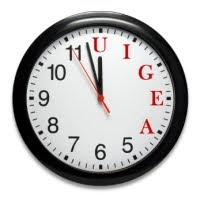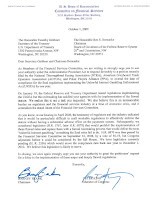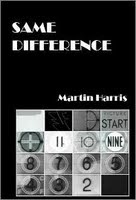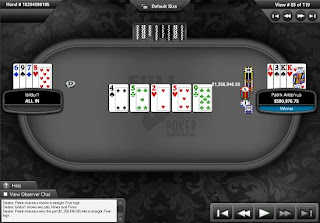Does the WSOP Need a Commish?
 As I’m sure most of you have heard by now, a delay was indeed granted for compliance with the finalized regulations of the Unlawful Internet Gambling Enforcement Act of 2006, meaning U.S. banks and other financial institutions will not be required to block transactions with online gambling sites until June 1, 2010. Doesn’t mean they cannot block such transactions already -- they have been able to do that since January 19, 2009, in fact -- but doing so is still not mandatory.
As I’m sure most of you have heard by now, a delay was indeed granted for compliance with the finalized regulations of the Unlawful Internet Gambling Enforcement Act of 2006, meaning U.S. banks and other financial institutions will not be required to block transactions with online gambling sites until June 1, 2010. Doesn’t mean they cannot block such transactions already -- they have been able to do that since January 19, 2009, in fact -- but doing so is still not mandatory.So another six months to see if any other legislation might get moved along here. Will be keeping an eye on that hearing scheduled for Thursday, December 3 at 10:00 a.m., the one where the House Financial Services Committee will be discussing Rep. Barney Frank’s two bills -- one to make the UIGEA delay a full year, and the other to introduce a mechanism with which to regulate online gambling in this country.
The delay is terrific news, in my view, and while regulation isn’t necessarily desirable -- particularly if certain states, namely my own, opt out -- it doesn’t look as bad as a world in which the UIGEA has been fully implemented.
Indeed, the misbegotten law has already done significant damage in the poker world, negatively affecting both online and live poker as well as the various industries associated with both. Sure, the UIGEA has certainly provided me with a lot to write about here at Hard-Boiled Poker over the last three-plus years, but the overall effect of the law has been exceedingly negative. Will be glad to see the sucker taken care of once and for all.
Speaking of the “UIGEA era,” I was thinking again over the weekend about the World Series of Poker and how a little over two weeks ago, Jeffrey Pollack stepped down from his post as the first-ever WSOP Commissioner. Since Pollack’s resignation, a few folks have written further about how he’ll be remembered, and indeed, one aspect of his tenure as Commish will be how it mostly coincided with this awful law that single-handedly slowed down what appeared at the time to be unstoppable growth for the Series.
In “The Pollack Legacy: The Good, the Bad, and the Silly,” Amy Calistri does a good job compiling various moments of significance during Pollack’s time with the WSOP. In her discussion, Calistri notes how “After the UIGEA, people were ready to stick a fork in poker,” and how she and others all “argued that the UIGEA would accelerate the end of the poker boom.” However, the WSOP rebounded from the hit, and Pollack’s contribution to that recovery was certainly, as Calistri says, a “significant accomplishment” for which he’ll be remembered.
T.J. Cloutier also wrote a little something about Pollack last week, a piece titled “Poker Has Lost a Good Man.” In his article, Cloutier talks a bit about how Harrah’s apparently created “a position one level above” Pollack’s, someone who would henceforth “be a buffer between [Pollack] and top management,” and speculates about whether that bit of reorganization might have provided a kind of encouragement for Pollack to step down.
 Cloutier, who served as a member of the Players Advisory Council (a Pollack creation), notes that while Pollack always “had to answer to corporate management,” in his view “he was pretty much in control of the World Series.” The implication, then, is that given a situation in which the Commissioner no longer enjoyed such control, Pollack chose to move on. Not sure what the hierarchy really is at present, but the fact that soon after Pollack’s resignation Harrah’s stated it has “no intention at this time to replace the Commissioner role” does suggest the corporation feels that moving forward the operational management of the WSOP can continue without any Commish appearing to guide the ship.
Cloutier, who served as a member of the Players Advisory Council (a Pollack creation), notes that while Pollack always “had to answer to corporate management,” in his view “he was pretty much in control of the World Series.” The implication, then, is that given a situation in which the Commissioner no longer enjoyed such control, Pollack chose to move on. Not sure what the hierarchy really is at present, but the fact that soon after Pollack’s resignation Harrah’s stated it has “no intention at this time to replace the Commissioner role” does suggest the corporation feels that moving forward the operational management of the WSOP can continue without any Commish appearing to guide the ship.Does the WSOP need a Commissioner? It did, after all, make it 35 years without one.
Gary Trask of Casino City Times thinks so. In a recent article, Trask argues that the Series “needs someone -- not a group of people -- to act as the face of the brand.” He has a point, and indeed, as one further considers the “Pollack legacy,” one might add how he succeeded in making the whole idea of having someone “act as the face of the brand” seem essential for the WSOP. (In the post-Binion’s era of the WSOP, that is.)
As Trask notes, one especially important function of the Commissioner is to provide “a voice to do the same and take the heat when something goes awry” -- something that will surely happen, no matter how well managed things go. Trask goes onto suggest his top ten current poker professionals who could serve as Commish, although I think most would agree that it probably wouldn’t do to have a pro come along to fill the position. (Trask puts the well-liked Mike Sexton atop his list, perhaps the only serious suggestion among the ten.)
While not everyone was always happy with Pollack, the consensus seems to be mostly favorable regarding his legacy, and the fact that it seems difficult to imagine a replacement is probably further evidence of his having served a successful term in the position. I agree with Trask that it is probably a mistake to move forward without having someone acting as WSOP Commissioner, although I cannot easily imagine who would be the person to fill that politically-challenging role.
I know I wouldn’t want to.
Labels: *the rumble, Amy Calistri, Gary Trask, Jeffrey Pollack, T.J. Cloutier, WSOP














 . Antonius requested time, then bet $91,000 -- a little over half the pot. Isildur1 then also requested time, ultimately raising to $435,000. Antonius reraised to $779,000, and Isildur1 called with his remaining $162,473.
. Antonius requested time, then bet $91,000 -- a little over half the pot. Isildur1 then also requested time, ultimately raising to $435,000. Antonius reraised to $779,000, and Isildur1 called with his remaining $162,473.


 for a five-high straight. Isildur1 turned over
for a five-high straight. Isildur1 turned over 


 for a big draw to a higher straight.
for a big draw to a higher straight.  and the river the
and the river the  , and the Finnish pro’s hand had held. Total rake for the hand? Fifty cents.
, and the Finnish pro’s hand had held. Total rake for the hand? Fifty cents.








 . A raise was probably in order there, but I actually was looking to play hands in position versus Fisherman, and since he seemed to have learned how to fold from the blinds, I wanted to make sure he’d stick around for the flop. The others folded to Fisherman who checked, and so three of us saw the flop come
. A raise was probably in order there, but I actually was looking to play hands in position versus Fisherman, and since he seemed to have learned how to fold from the blinds, I wanted to make sure he’d stick around for the flop. The others folded to Fisherman who checked, and so three of us saw the flop come 

 . I still held the nuts. Fisherman quickly bet the pot ($7.30), I raised pot, and Fisherman called with his remaining chips.
. I still held the nuts. Fisherman quickly bet the pot ($7.30), I raised pot, and Fisherman called with his remaining chips.

 . First thought was, well, damn, we have essentially the same hand. Next instinct was to check his hand for spades, and when I saw he was not on the flush draw, I relaxed. Stupidly.
. First thought was, well, damn, we have essentially the same hand. Next instinct was to check his hand for spades, and when I saw he was not on the flush draw, I relaxed. Stupidly.  , and when I expected the pot to be split, I sadly -- and somewhat confusedly -- watched as all of the chips moved in his direction. What gives?
, and when I expected the pot to be split, I sadly -- and somewhat confusedly -- watched as all of the chips moved in his direction. What gives? 


















